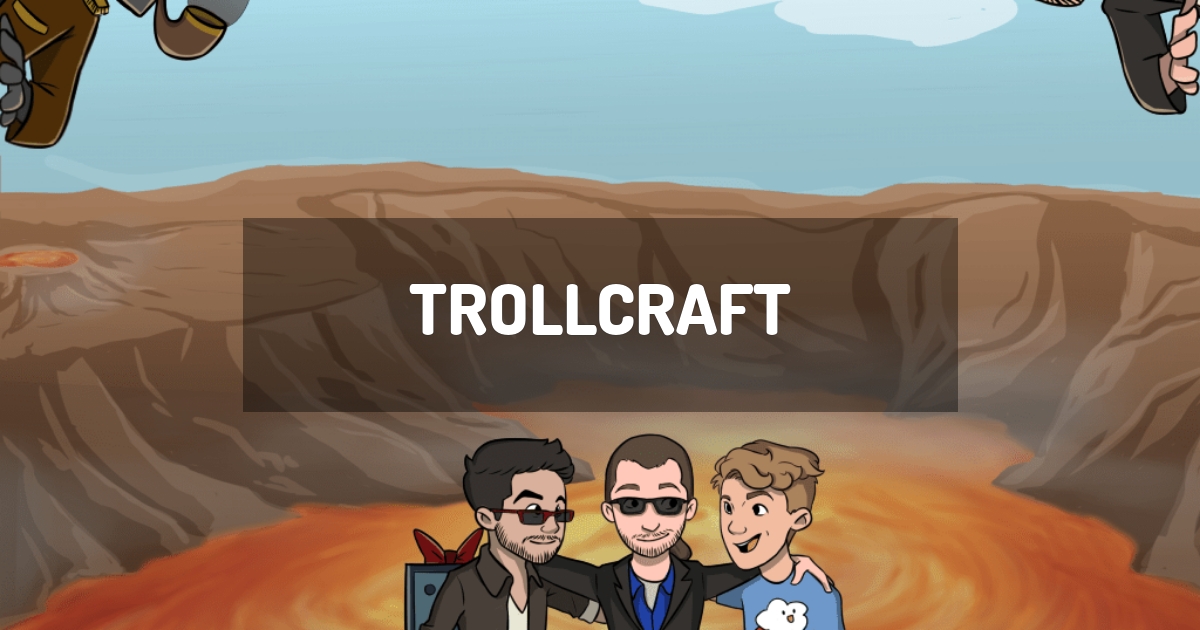Introduction
Welcome to the world of online gaming, where players from all corners of the globe come together to compete, strategize, and immerse themselves in immersive virtual environments. While online gaming has revolutionized the way we connect and interact with others, it has also given rise to a phenomenon known as trolling.
Trolling, in the context of online gaming, refers to the act of deliberately provoking and irritating others within the gaming community. Trolls thrive on creating chaos, frustration, and animosity among players, often through disruptive behavior, offensive language, or cheating. Their actions not only disrupt the gameplay experience but also have a significant impact on the overall atmosphere of online gaming communities.
This article will delve into the world of trolling in online gaming, exploring its different forms, underlying psychology, and the effect it has on the gaming community. We will also provide tips and strategies for dealing with trolls and fostering a positive gaming environment.
Definition of Trolling
Trolling can be described as a deliberate and disruptive behavior where individuals engage in provocative and inflammatory actions or comments to elicit emotional responses from others in the online gaming community. These individuals, known as trolls, often have no genuine interest in the game itself, but instead derive pleasure from the chaos and frustration they create.
T rolling can take various forms, including:
- Chat Trolling: This type of trolling involves purposefully making offensive or derogatory remarks in the game’s chat system. Trolls may use profanity, engage in hate speech, or target specific individuals with personal attacks.
- Griefing: Griefers intentionally disrupt gameplay by sabotaging their teammates or opponents. This can involve actions such as intentionally obstructing teammates, stealing resources, or purposely causing team members to fail.
- Cheating: Some trolls resort to cheating or exploiting glitches within the game to gain an unfair advantage. This not only diminishes the enjoyment for other players but also undermines the integrity of the game.
- False Reporting: Trolls may falsely report other players for violations they did not commit, leading to unnecessary penalties or bans. This not only wastes the time of game administrators but also causes innocent players to be unfairly punished.
It’s important to note that trolling is distinct from good-natured banter or playful teasing. Trolling is characterized by its malicious intent to upset, frustrate, or anger others. It creates a toxic and negative environment within the online gaming community, detracting from the enjoyment of the game for everyone involved.
Different Types of Trolling in Online Gaming
Trolling in online gaming takes many forms, each with its own unique methods of provocation and disruption. Understanding these different types can help players recognize when they are being targeted and take appropriate action. Here are some common types of trolling seen in online gaming:
- Flaming: Flaming is characterized by the use of aggressive and inflammatory language towards other players. Trolls may resort to personal attacks, insults, and derogatory remarks to provoke their targets and create a hostile atmosphere.
- Baiting: Baiting involves enticing other players to engage in arguments or conflicts. Trolls may make controversial statements or deliberately misinterpret others’ comments to provoke a response. Their goal is to create chaos and discord within the gaming community.
- Trolling for Attention: Some trolls seek attention and validation by deliberately drawing the focus onto themselves. They may engage in disruptive behavior or make outrageous claims to gain the spotlight, diverting attention from the actual gameplay.
- Trolling for Laughs: This type of trolling involves engaging in disruptive and unconventional behavior solely for the purpose of amusement. These trolls derive pleasure from the confusion and frustration that their actions cause, often targeting unsuspecting players.
- Identity Theft: Trolls may impersonate other players or game administrators to deceive and manipulate others. They exploit trust and authority to trick players into sharing personal information or engage in actions that could compromise their accounts.
- Swatting: Swatting is an extreme form of trolling where the troll makes a false emergency call, typically to law enforcement, with the intention of causing a large-scale disruption or harm. This highly dangerous and illegal activity poses a serious threat to the targeted player’s safety.
It is important for players to be aware of these different types of trolling and remain vigilant while engaging in online gaming. Recognizing the tactics employed by trolls can help to minimize their impact and create a more positive gaming environment for all players involved.
The Psychology Behind Trolling
Understanding the psychology behind trolling can give us valuable insights into why individuals engage in such disruptive and provocative behavior in online gaming. While the motivations may vary from person to person, several common psychological factors contribute to the prevalence of trolling:
Anonymity: The anonymity provided by online gaming platforms allows individuals to dissociate themselves from the consequences of their actions. This sense of detachment can embolden trolls to engage in behavior they would never consider in real-world interactions.
Power and Control: Trolling can provide a sense of power and control over others. By deliberately provoking emotional reactions and exerting influence over the gameplay experience, trolls feel a temporary sense of dominance and superiority.
Seeking Attention: Some individuals engage in trolling to gain attention and validation from the online gaming community. They may feel a sense of insignificance in their real lives and use trolling as a means to garner recognition, regardless of whether it is positive or negative.
Inadequacy and Frustration: Trolls often harbor feelings of inadequacy, frustration, or resentment. Engaging in disruptive behavior allows them to vent their frustrations and redirect negative emotions onto others.
Escapism: Online gaming provides an escape from reality, allowing individuals to adopt alternate personas and engage in behavior they may not exhibit in their everyday lives. Trolling becomes a way to explore a different identity and unleash suppressed desires.
Social Dynamics: The social dynamics within online gaming communities can contribute to the proliferation of trolling. Trolls may seek validation and acceptance from other trolls or find a sense of belonging within subcultures that thrive on disruptive behavior.
It is important to note that not all players who engage in trolling behavior exhibit these psychological traits. Some may simply be looking for a quick reaction or are motivated by a desire to disrupt and annoy others. Nevertheless, by understanding the psychology behind trolling, we can approach these individuals with empathy while also developing strategies to mitigate their impact and cultivate a positive gaming environment.
The Motivations and Goals of Trolls
Understanding the motivations and goals of trolls is crucial in addressing their disruptive behavior in online gaming communities. While each troll may have their own unique motivations, several common factors contribute to their actions:
Seeking Reaction: One of the primary motivations of trolls is to elicit emotional responses from other players. They derive pleasure and satisfaction from the frustration, anger, or confusion that their actions provoke.
Power and Control: Trolls often seek to assert power and control over others within the gaming community. By disrupting gameplay, they can manipulate the experience of other players, exert dominance, and create an atmosphere of chaos.
Validation and Recognition: Some trolls engage in disruptive behavior to seek attention and validation from their peers. They perceive trolling as a means to stand out and gain acknowledgement, regardless of whether that acknowledgment is positive or negative.
Escapism: Trolling can serve as an escape from the realities of everyday life. By assuming different personas and engaging in disruptive behavior, trolls can experience a temporary reprieve from personal challenges or frustrations.
Boredom or Amusement: For certain individuals, trolling serves as a form of entertainment or amusement. They find satisfaction in creating chaos, observing the reactions of others, and experiencing a sense of excitement and thrill.
Misguided Revenge: Some trolls may engage in disruptive behavior as a means of revenge or retaliation. They may target specific players, game developers, or communities, driven by a sense of injustice or perceived mistreatment.
While these motivations may appear contradictory or irrational to some, it is important to remember that trolls do not necessarily adhere to conventional reasoning or ethical considerations. Their primary goal is to disrupt and create discord for their own personal gratification, often at the expense of others and the overall gaming experience.
By understanding the motivations and goals of trolls, gaming communities can develop strategies to address their behavior and minimize their impact. This can involve implementing robust reporting and moderation systems, fostering a positive and inclusive environment, and empowering players to stand up against trolling and support one another.
The Impact of Trolling on Online Gaming Communities
Trolling has a significant impact on online gaming communities, affecting both individual players and the overall gaming experience. The consequences of trolling can be far-reaching and detrimental. Here are some ways in which trolling impacts online gaming communities:
Negative Atmosphere: Trolling creates a toxic and negative atmosphere within gaming communities. The constant presence of trolls and their disruptive behavior can lead to feelings of hostility, frustration, and anxiety among players, eroding the enjoyment of the game.
Deterioration of Trust: Trolling erodes trust between players and undermines the sense of community within gaming environments. The actions of trolls can lead to suspicion, paranoia, and a lack of confidence in fellow players, making it more difficult to form meaningful connections and engage in collaborative gameplay.
Decreased Player Retention: The presence of trolls can drive away both new and experienced players. Constant exposure to disruptive behavior can discourage individuals from continuing their involvement in the game, resulting in decreased player retention and shrinking player bases.
Damaged Reputation: Online games and gaming communities that are plagued by trolls may develop a negative reputation. Word spreads quickly, and potential new players may be deterred from joining the community due to concerns about encountering toxic behavior. This can have long-lasting effects on the game’s popularity and success.
Emotional Impact: Trolling can have a significant emotional impact on targeted players. Constant harassment, insults, and personal attacks can lead to stress, anxiety, and even feelings of depression. It can also affect players’ self-esteem and confidence, making them hesitant to engage with others in the gaming community.
Undermining Fair Competition: Trolls who cheat or exploit game mechanics undermine fair competition and integrity within online gaming. Their actions create an unfair advantage, diminishing the skill-based nature of the game and making it frustrating for players who are genuinely striving to improve.
Stifled Creativity and Innovation: Trolling can undermine the conducive environment necessary for creativity and innovation within gaming communities. Fear of being targeted by trolls may discourage players from sharing ideas, expressing themselves, or contributing positively to the community, ultimately hindering the growth and evolution of the game.
The impact of trolling on online gaming communities is significant and cannot be overlooked. Addressing this issue requires a collective effort from game developers, community moderators, and players themselves. By implementing stricter moderation measures, promoting positive behavior, and fostering a supportive community culture, it is possible to minimize the impact of trolling and create a more enjoyable and inclusive gaming experience for all.
Dealing with Trolls: Tips and Strategies
Trolls can be a persistent nuisance in online gaming communities, but there are ways to effectively deal with their disruptive behavior. Here are some tips and strategies for handling trolls:
- Don’t Feed the Trolls: Engaging with trolls or responding to their provocations only fuels their behavior. Ignore their comments, mute or block them, and focus on enjoying the game without giving them the satisfaction they seek.
- Report and Document: Most gaming platforms have reporting systems in place. If you encounter a troll, report their behavior to the game administrators. Provide evidence if possible, such as screenshots or recordings, to support your case.
- Stay Calm and Composed: Trolls thrive on emotional reactions. Maintain your composure and avoid stooping to their level by responding with insults or aggression. Showing that their actions do not affect you can help discourage their behavior.
- Support Each Other: Build a supportive network within the gaming community. Stand up against trolls together, defend fellow players who are being targeted, and report incidents collectively. Creating a united front can deter trolls and foster a positive gaming environment.
- Use Moderation Tools: Take advantage of the moderation tools provided by the game. Block or mute trolls to prevent them from directly interacting with you. Utilize privacy settings to control who can communicate with you within the game.
- Document Instances of Trolling: Keep a record of instances where you encounter trolls. This documentation can be useful when reporting repeated offenders or providing evidence to game administrators.
- Support Effective Moderation: Encourage game developers and administrators to implement robust moderation systems. Active and efficient moderation can help identify and punish trolls, creating a safer and more enjoyable environment for all players.
- Educate and Raise Awareness: Spread knowledge about trolling and its impact within the gaming community. Educate fellow players about the strategies trolls use and how to effectively deal with them. By raising awareness, we can collectively work towards minimizing the influence of trolls.
- Maintain a Positive Mindset: Remember that trolls do not define the entire gaming community. Surround yourself with positive, like-minded players and focus on enjoying the game. Do not allow the actions of a few individuals to overshadow your overall gaming experience.
By implementing these tips and strategies, individuals and gaming communities can effectively manage the impact of trolls. It is important to create an environment that promotes respect, inclusivity, and enjoyment for all players involved.
Creating a Positive Gaming Environment
Fostering a positive gaming environment is essential for the well-being and enjoyment of all players. By promoting a culture of respect, inclusivity, and sportsmanship, gaming communities can mitigate the influence of trolls and create a more enjoyable experience. Here are some strategies for creating a positive gaming environment:
- Lead by Example: Set a positive example through your own behavior. Treat others with respect, avoid engaging in toxic behavior, and be supportive of fellow players.
- Encourage Positive Communication: Promote healthy communication within the community. Encourage players to be kind, helpful, and use constructive language. Discourage the use of offensive or derogatory remarks.
- Establish Clear Rules and Guidelines: Game developers and administrators should establish and enforce clear rules and guidelines that discourage trolling and disruptive behavior. Communicate these guidelines clearly to all players and ensure proper enforcement.
- Promote Inclusivity and Diversity: Celebrate and respect the diversity of players within the community. Encourage inclusivity regardless of gender, race, age, or background. Foster an environment where everyone feels welcome and included.
- Implement Effective Moderation: Invest in effective moderation systems to swiftly address reports of trolling or disruptive behavior. Ensure that there are mechanisms in place to evaluate and take action against offenders.
- Support Positive Role Models: Recognize and highlight players who exhibit exemplary behavior and sportsmanship. Encourage positive role models within the community to serve as an inspiration for others.
- Organize Community Events: Arrange community events that promote teamwork, cooperation, and friendly competition. These events can strengthen bonds between players and encourage a more positive atmosphere.
- Facilitate Open Dialogue: Encourage open dialogue within the community where players can express concerns, share ideas, and provide feedback. Actively listen to the community’s needs and address any issues that arise.
- Provide Resources for Support: Offer resources and support for players who have been targeted by trolls. This can include information on how to report incidents, access to support forums, or guidance on dealing with emotional stress.
- Continuously Educate: Regularly educate the community about the impact of trolling and the importance of a positive gaming environment. Share resources, tips, and strategies on how to deal with trolls effectively.
Creating a positive gaming environment requires ongoing effort and collaboration from players, game developers, and administrators. By fostering a culture of respect, inclusivity, and sportsmanship, gaming communities can thrive and provide a more enjoyable and fulfilling experience for all players involved.
Conclusion
Trolling in online gaming is a pervasive issue that has a significant impact on the gaming experience and the overall atmosphere within gaming communities. Recognizing the different types of trolling, understanding the psychology behind it, and being aware of the motivations of trolls is crucial in addressing this disruptive behavior.
Dealing with trolls requires a collective effort from players, game developers, and administrators. Implementing effective moderation systems, fostering a positive gaming environment, and empowering players to support one another are vital steps in mitigating the influence of trolls.
Creating a positive gaming environment is essential for the well-being and enjoyment of all players. By promoting a culture of respect, inclusivity, and sportsmanship, gaming communities can reduce the impact of trolling and create a more welcoming and enjoyable experience for everyone involved.
Remember, trolls do not define the entire gaming community. For every troll, there are numerous supportive and positive players who contribute to the vibrant and engaging nature of online gaming.
By staying vigilant, supporting one another, and advocating for a positive gaming culture, we can create a space where players can truly embrace the joys of online gaming while keeping trolls at bay.

























